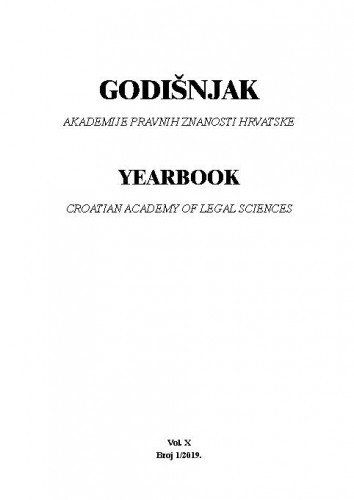U hrvatskome su pravnom poretku određeni ljudskopravni standardi ukorijenjeni u praksu postupanja u građanskome sudskom postupku te se osjećaju njegovim sastavnim dijelom, premda su svoje izvorište imali u Europskoj konvenciji za zaštitu ljudskih prava i temeljnih sloboda, a u novije vrijeme i u Povelji EU-a o temeljnim pravima. Iz toga se može zaključiti da proces europeizacije građanskoga parničnog postupka, koji se zbog rastućeg utjecaja Europske unije na nacionalni građanski parnični postupak tek počinje osvještavati, zapravo već dulje vrijeme traje. Velik doprinos integriranju postulata prava EU-a u nacionalne građanske parnične postupke daje razvoj sekundarnog prava u okviru pravosudne suradnje u građanskim i trgovačkim stvarima posljednjih godina. Uz to, bitna je uloga judikature Suda Europske unije te preuzimanja postupovnih pravila implementacijom pojedinih direktiva, koje unatoč svojoj materijalnopravnoj prirodi, takva pravila sadržavaju. Stoga, polazeći od Rewe-Comet doktrine 'postupovne autonomije' država članica, u radu se želi istražiti kako je europeizacija do sada (pre)oblikovala određena obilježja hrvatskoga građanskog parničnog postupka. Pri tome, ključno je pitanje na koje se želi odgovoriti – jesu li tako u funkcioniranju građanskog pravosuđenja u RH ostvareni preduvjeti potrebni za uzajamno povjerenje te pravosudnu suradnju s drugim državama članicama te zaštitu temeljnih ljudskopravnih standarda koje promiče pravo EU-a?; In the Croatian legal order, certain human rights standards are deeply embedded in the practice of civil proceedings and are considered as its main part, although they emanate from the European Convention on Human Rights and the EU Charter of Fundamental Rights. Hence, it can be concluded that the process of 'Europeanization', whose visibility has become obvious with the growing influence of the EU on the national civil procedure, has been under way for some time. The development of secondary law in the area of judicial co-operation in civil and commercial matters between Member States has been a major contribution to the integration of EU law into national civil litigation in recent years. Additionally, the jurisprudence of the Court of Justice of the EU and the adoption of certain rules into the national system through implementation of certain Directives, which contain such rules in spite of their substantive legal nature have had a significant role as well. Therefore, starting with the Rewe-Comet doctrine of 'procedural autonomy' of the Member States, the paper seeks to explore the influence of the process of 'Europeanization' on the shaping of certain standards of Croatian civil litigation and whether the desired effect has been achieved. The key question the paper aims to answer is whether the functioning of the civil justice system in Croatia fulfills the preconditions needed for mutual trust and judicial co-operation with other Member States and the protection of fundamental human rights promoted by EU law.
Sažetak

 Godišnjak Akademije pravnih znanosti Hrvatske : Yearbook Croatian Academy of Legal Sciences : 10,1(2019) / glavna urednica, editor-in-chief Irena Majstorović.
Godišnjak Akademije pravnih znanosti Hrvatske : Yearbook Croatian Academy of Legal Sciences : 10,1(2019) / glavna urednica, editor-in-chief Irena Majstorović.